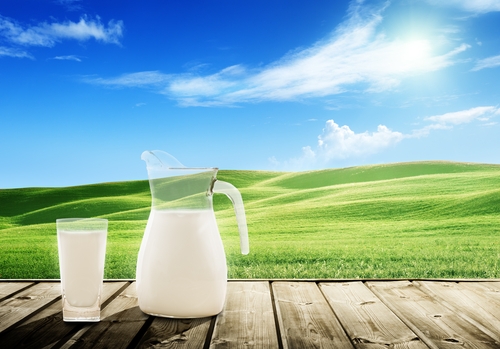
Reserve Bank Governor Graeme Wheeler has given the country's dairy farmers something of a pat on the back for the way they are handling their finances in what is a heavily indebted sector.
He told the DairyNZ conference in Hamilton (in a speech in which he also threatened currency intervention) that many dairy farmers were being "cautious" during the recent upsurge in dairy prices.
They were, he said, using their higher net incomes to acquire additional property and undertake farm improvements without taking on new debt - and in many cases are repaying debt.
"Farm building consents have been rising steadily and dairy conversions are increasing, while dairy farm prices remain well below 2008 levels and farm credit growth remains moderate," he said.
"Dairy farmers are therefore generally taking a cautious approach in the knowledge that the current high prices can turn around quickly. This is encouraging to see given the vulnerability of the sector and its already high debt load."
Wheeler said dairy debt almost trebled over the past decade, and currently stood at $32 billion.
"It is concentrated among a small proportion of highly leveraged farms with around half of the dairy debt being held by only 10% of dairy farmers."
Strong export earnings had seen the sector’s debt to income ratio improve between 2010 and 2012, although for the decade as a whole this ratio tracked steadily upward.
"The elevated debt level means that some farmers are potentially highly exposed if there are substantial declines in the milk price pay-out, or if land prices fall.
"With dairy production techniques becoming more intensive and with a higher cost structure, the implied ‘breakeven’ pay-out for individual farm profitability has increased over time.
"A significant decline in the milk pay-out, for example, could place some highly indebted farmers under financial strain, particularly with the market for farmland being more illiquid in times of stress.
"Higher debt levels mean that farmers are also exposed to rising interest rates, especially with close to 70% of dairy debt comprising floating rate mortgages."
Wheeler went on to talk at some length about New Zealand's relationship with China and China's growth. He said that country's economic growth over the past 35 years was "unparalleled" in modern times.
"China achieved average annual growth of 10% in the three decades to 2010, and although growth has slowed, the Government’s target is for annual growth of 7.5% over the medium term."
Wheeler said "an important issue" was whether China could maintain a 7-8% growth rate over the long term.
"China has achieved outstanding economic growth for over 30 years, but it faces several difficult challenges in the years ahead.
"These include: a declining labour force and aging population; rebalancing the economy towards stronger consumption and higher value added exports; meeting infrastructure demands; addressing income inequalities in the central and western regions; tackling corruption and environmental issues; implementing the ambitious set of reforms announced in the third Plenum; and managing the very rapid build-up in local government and corporate debt over the past five years.
"So while the long term future dairy trade with China seems assured, there are risks of temporary disruption along the way."
Wheeler then raised "two particular issues" for the dairy sector.
"...Firstly, whether we have diversified our dairy export markets sufficiently, and secondly, could we find that our market leadership in respect of exports of whole milk powder is challenged?"
He said there were grounds for optimism on the diversification front.
"Fifty years ago, nearly 90% of our dairy exports went to the United Kingdom, today it’s 0.3%.
"Currently, Fonterra operates in more than 100 countries, several emerging market economies are growing rapidly, and new trading opportunities are being opened up through international trade agreements, and possibly through a trans-pacific partnership if negotiations are successful. India, rather than China, is forecast by the Australian Bureau of Agricultural and Resource Economics and Sciences to be the major new market opportunity for dairy exports in the future.
"The Bureau projects global demand for dairy products to increase from US$7 billion in 2007 to US$85 billion in 2050 (in 2007 USD). By 2050, India’s import demand for dairy products is projected to be US$48 billion – more than three times China’s US$15 billion, given the projected growth in China’s domestic production.
"World Bank projections suggest that China and India could be the world’s largest and third largest economies at that time."
Wheeler said the "second risk" was that a strong competitor entered the Chinese market and threatened our market share.
"New Zealand supplied over 70% of China’s dairy imports in 2013," he said.
"This high market share reflects the high quality of our product, in terms of nutritional value and safety, and the marketing skills in achieving major inroads into a market that others have found difficult.
"But other countries also produce clean milk and these producers have seen the high returns and market share that New Zealand enjoys in China.
"Some, like the US producers, are investing in whole milk powder driers.
"While New Zealand is likely to continue dominating global milk powder export production for many years, we should expect competitors to more aggressively target the Chinese market. This reinforces the need for further diversification in export products and markets, including positioning for the opportunities that are expected to open up in the Indian market," Wheeler said.
1 Comments
$6.75 the new black (minimum)
ex Pita Alexander
http://www.radionz.co.nz/audio/player/2595189
just the first 3 mins worth

We welcome your comments below. If you are not already registered, please register to comment
Remember we welcome robust, respectful and insightful debate. We don't welcome abusive or defamatory comments and will de-register those repeatedly making such comments. Our current comment policy is here.